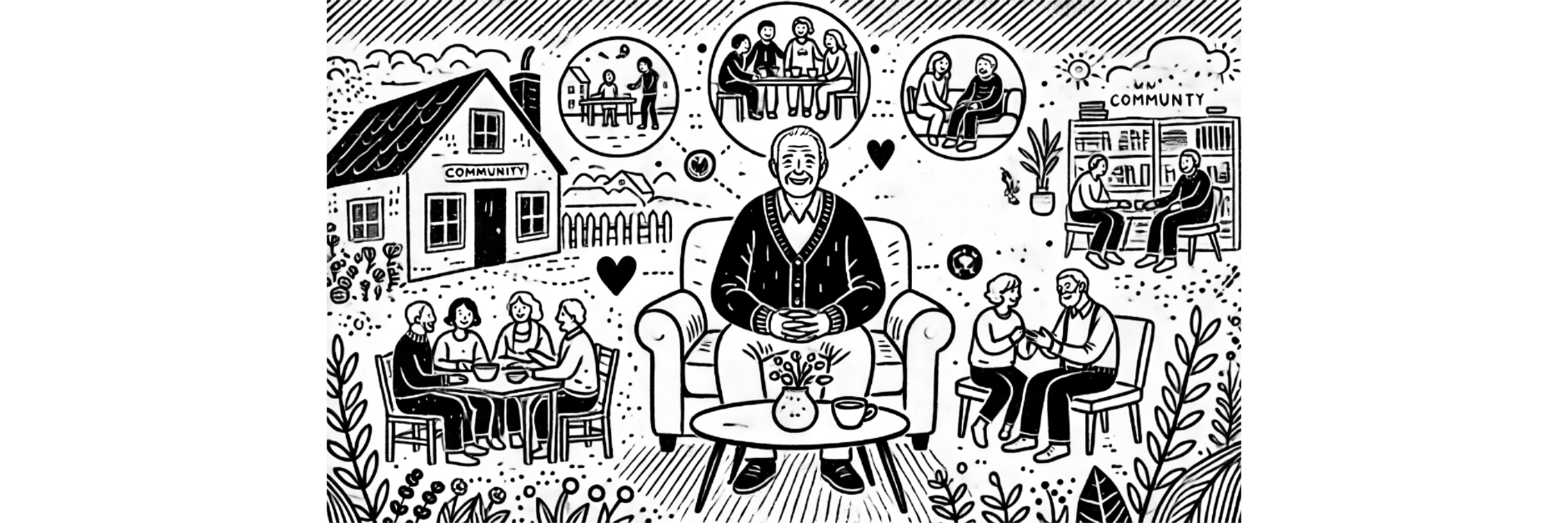Are You Worried About Dying Alone and Nobody Knowing for Weeks?
This question might sound unsettling, but it’s a real and growing concern. The recent story of an elderly couple in Singapore who passed away in their Jurong flat, unnoticed for weeks, is a stark reminder of the challenges of aging in isolation.
In Singapore, as family sizes shrink and lifespans grow, more seniors are living alone. Loneliness and isolation don’t just affect emotional well-being. They pose serious risks to physical health and safety. So, how can we ensure that we don’t end up in the same situation?
Retirement planning is often framed around financial security, but that’s just one part of the equation. Building a connected and fulfilling life in retirement is equally important. Here’s a deeper dive into what we can do to address these concerns.
Every week, I’ll be sharing practical tips and invaluable knowledge to guide you on your path to financial independence.
The Loneliness Epidemic Among Seniors
Singapore’s aging population is facing a unique set of challenges. More seniors are living alone due to smaller family units and changing social norms. While independence has its advantages, isolation can lead to severe consequences.
Loneliness has been shown to increase the risk of depression, anxiety, and chronic illnesses such as heart disease. It can also shorten lifespans, with some studies suggesting that loneliness is as harmful to health as smoking 15 cigarettes a day.
For many seniors, the absence of regular social interaction means that health emergencies or even death can go unnoticed for days or weeks. This is a sobering reality, but it’s not inevitable. Proactive planning and community support can make all the difference.
What the Singapore Government is Doing to Help
Singapore has recognized the challenges posed by an aging population and has launched several initiatives to address them. These programs are designed to help seniors stay socially connected, physically active, and financially secure.
Age Well SG Programme
Launched in 2024, this program allocates $3.5 billion over the next decade to enhance the well-being of seniors. A cornerstone of this initiative is the network of Active Ageing Centres, which provide a hub for seniors to engage in activities such as exercise, volunteering, and social meetups. These centres foster a sense of community and ensure that seniors remain socially connected.
Community Care Apartments
Introduced as part of Singapore’s efforts to support independent living for seniors, these apartments combine senior-friendly housing with integrated care services. For instance, Harmony Village @ Bukit Batok provides a living environment where seniors can maintain their independence while having access to healthcare and social support.
Financial Support Schemes
Programs like the Silver Support Scheme, Merdeka Generation Package, and Pioneer Generation Package ensure that seniors have access to financial resources and healthcare. These schemes alleviate the financial burden of aging and allow retirees to focus on building meaningful lives.
Healthcare Innovations
Singapore is redeveloping Alexandra Hospital into an integrated health campus by 2030, with a focus on geriatric and rehabilitative care. This ensures that seniors have access to specialized healthcare services tailored to their needs.
Could Coliving Be the Solution?
For aging singles or seniors who want to avoid isolation, coliving offers a modern and practical solution. Coliving involves sharing a home with like-minded individuals, providing built-in companionship and shared responsibilities.
One notable example in Singapore is Red Crowns, a coliving concept designed for seniors. It emphasizes creating a supportive and inclusive environment where residents can share resources, meals, and activities.
The benefits of coliving go beyond just financial savings. It fosters emotional well-being by ensuring that seniors are surrounded by a community that notices if something is wrong and steps in when help is needed. It’s an innovative way to combat loneliness while promoting safety and connection.
How to Build a Connected Retirement
Beyond leveraging government programs and exploring coliving, there are practical steps we can take to ensure a socially connected retirement:
- Stay Socially Active
- Join local clubs, volunteering groups, or Active Ageing Centres to meet new people and participate in meaningful activities.Make it a habit to regularly connect with friends and family, whether in person or through technology.
- Plan Your Living Arrangements
- Consider options like Community Care Apartments or coliving setups such as Red Crowns to ensure you’re surrounded by a supportive community.
- Discuss your long-term living preferences with family to ensure they align with your needs and values.
- Maintain Financial Independence
- Take advantage of schemes like the Silver Support Scheme and healthcare benefits under the Merdeka and Pioneer Generation Packages to reduce financial stress.
- Plan for long-term healthcare needs, including savings for emergencies or chronic conditions.
- Build Intergenerational Bonds
- Foster relationships with younger family members or neighbors. Mentoring younger generations or simply spending time with them can bring joy and a sense of purpose.
Turning Fear Into Action
The fear of dying alone and unnoticed is a sobering thought, but it’s also a call to action. By taking steps to build social connections, plan living arrangements, and leverage available resources, we can prevent this from becoming our reality.
Retirement isn’t just about financial freedom—it’s about creating a life that is fulfilling, connected, and secure. Whether it’s through government-supported initiatives, coliving options like Red Crowns, or simply staying engaged with family and community, the choices we make today can shape the quality of our later years.
What About You?
Have you thought about how you want to live in your retirement years? Would you consider coliving or other community-focused options? Let’s start a conversation, share your thoughts in the comments below.
By taking proactive steps now, we can ensure that our retirement is not only financially secure but also rich in relationships and purpose. Let’s make sure no one has to face the fear of dying alone, unnoticed, and unsupported.

